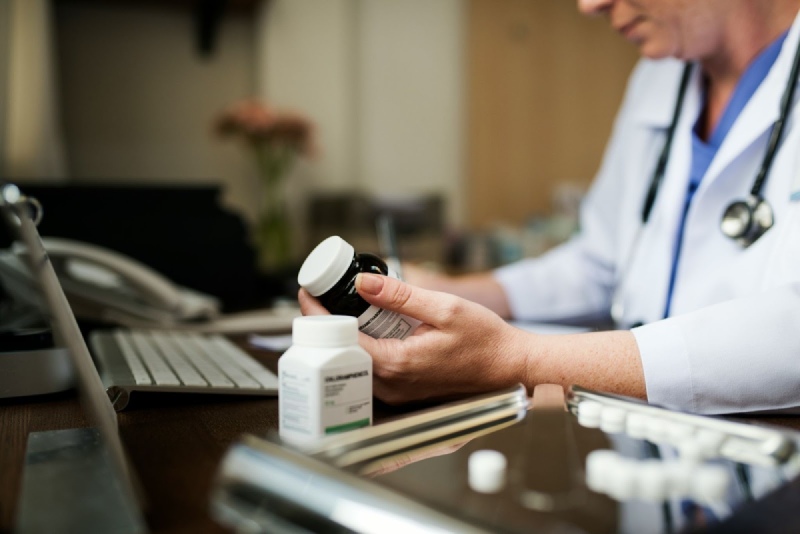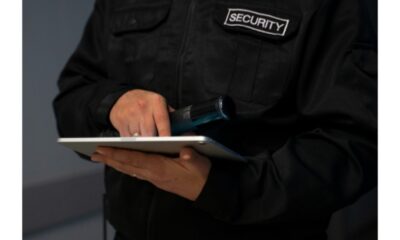Health
Nadir Lahmeur: Smart Solutions in Pharmaceutical Packaging

According to Nadir Lahmeur, smart pharmaceutical packaging is redefining how medications are protected, tracked, and used across global health systems. Enhanced with digital technologies, smart packaging supports everything from supply chain transparency to patient adherence, while also helping companies stay compliant with standards like the FDA and EU MDR.
From RFID tracking, temperature sensors, or interactive instructions, smart packaging has begun to play a pivotal role in business planning and healthcare delivery. As innovation continues, companies that prioritize these systems are better positioned to ensure product integrity, meet stringent data requirements, and improve outcomes across the board.
Packaging in the Pharmaceutical Industry
Pharmaceutical packaging has shifted to being a critical component of drug delivery and safety. With complex global supply chains and rising regulatory demands, packaging must now support product integrity, traceability, and efficient distribution.
The demand for innovation is rising as manufacturers look to address issues like counterfeiting and product recalls. In this backdrop, smart packaging is becoming essential, helping companies meet compliance standards while improving patient trust and product security. Cold chain medications, such as some vaccines, now rely heavily on advanced packaging to maintain stability during transit.
Smart Packaging Technologies
Smart packaging in the pharmaceutical industry integrates digital features that enhance safety, communication, and monitoring throughout a product’s life cycle. Technologies like RFID tags and QR codes allow each unit to be uniquely identified and traced, reducing the risk of mix-ups and enabling real-time inventory tracking.
Packaging equipped with temperature sensors, tamper-evident seals, or humidity indicators plays a vital role in maintaining product stability. These features are especially important during the storage and transport of sensitive medications. Smart labels can also alert stakeholders if a product has been compromised or stored outside recommended conditions. As these technologies progress, their integration will likely become standard practice across new product launches.
Practical Applications
Smart packaging helps manufacturers and distributors monitor product movement from production to delivery. RFID-enabled containers can transmit location and handling data, giving companies a clearer view of where a shipment is and if it’s in safe environmental conditions. This visibility reduces delays and enhances responsiveness to potential disruptions.
At the patient level, interactive packaging can guide users through medication routines. Connected blister packs, for example, can send reminders to smartphones or alert caregivers if doses are missed. Audio prompts or color-coded indicators are also being tested to assist patients with cognitive or visual impairments.
Business and Patient Benefits
Smart packaging provides pharmaceutical companies with greater visibility into product distribution, helping to reduce losses from theft or counterfeiting. By verifying authenticity at any point in the supply chain, these technologies protect both brand reputation and consumer safety. It also supports faster resolution of quality issues, minimizing the impact of recalls.
Patients benefit from features that support proper medication use. Digital interfaces can deliver clear instructions, track usage, or even notify healthcare providers of missed doses. This level of engagement is particularly useful for individuals managing complex treatment plans or long-term therapies.
Beyond individual use, healthcare systems gain operational efficiency by automating inventory control and reducing human error in medication handling. These improvements translate into better outcomes and cost savings at scale. Pharmacies and hospitals are already implementing these more widely, recognizing their potential to streamline workflows.
Regulatory Standards and Data Requirements
Regulatory bodies like the FDA and those enforcing the EU MDR have greatly influenced the development of smart packaging. Their guidelines emphasize serialization, traceability, and data integrity, which smart solutions are uniquely positioned to address. Packaging must now act as a verifiable data point within a broader compliance network that spans global markets.
The inclusion of Unique Device Identification (UDI) codes and digital audit trails ensures that each product can be tracked from manufacturing to patient use. Maintaining data security is a critical part of compliance. As packaging becomes more digitized, companies must invest in systems that protect sensitive information from breaches or tampering. Secure encryption protocols and access controls are becoming standard components in smart packaging infrastructure.
Looking Ahead
Future developments in pharmaceutical packaging are expected to incorporate AI-powered analytics and machine learning to predict usage patterns and detect anomalies. These insights could lead to more personalized medication regimens and support early intervention in treatment nonadherence.
Sustainability is another area gaining momentum. Companies are exploring biodegradable materials and recyclable electronics to reduce environmental impact without compromising performance. This shift reflects growing pressure from both regulators and consumers to balance innovation with responsibility. Efforts are underway to standardize environmentally friendly materials that still meet stringent pharmaceutical criteria.
Integrating these advanced features poses challenges, from cost to system compatibility, but the potential rewards in safety, efficiency, and patient experience continue to drive investment and exploration across the industry.
-

 Business4 weeks ago
Business4 weeks agoCorporate Social Responsibility in Action: Amerilodge’s Support of Health and Education Causes
-

 Business3 weeks ago
Business3 weeks agoWhere There Is a Will, There Is a Way: Hayson Tasher and the New Year, New Me Mindset in Security Entrepreneurship
-

 Health3 weeks ago
Health3 weeks agoMy Juno Health Enterprise Partnerships Signal Shift From Claims Management to Utilization Prevention
-

 Business2 weeks ago
Business2 weeks agoAlain Khoueiry and His Mission to Present Kazakhstan as a Land of Opportunity and Wonder
-

 Health1 week ago
Health1 week agoShame, Trauma, and the Mind-Body Connection: How Dr. Karina Menali’s Kai Wellness Frames Emotional Healing as Integral to Physical Health
-

 Music3 weeks ago
Music3 weeks agoBTS will Return With ‘BTS THE COMEBACK LIVE | ARIRANG’ Concert and New Documentary on Netflix
-

 Apps3 weeks ago
Apps3 weeks agoBest Apps with Simple IPO Application Process
-

 Tech2 weeks ago
Tech2 weeks agoBobby Atkins, Stonington Connecticut: How Effective Material Handling Supports On-Time Manufacturing Output






















